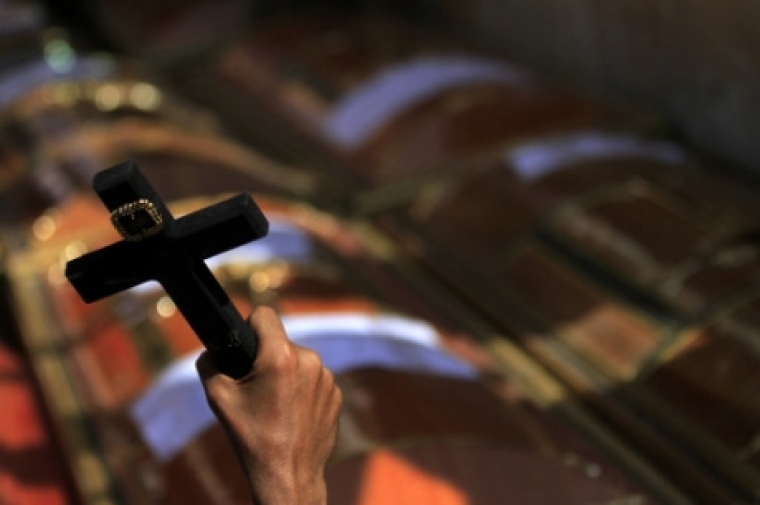
At least 25 Coptic Christians were killed by security forces and thugs as they protested the burning of a church in Mar Girgis, in Aswan, at the end of September. Christians are angry at the lack of action taken by the authorities to bring the perpetrators of this and other attacks to justice.
Egyptian finance minister Hazem Beblawi resigned on Tuesday in protest of the crackdown.
He was quoted by the state news agency MENA as saying: "Despite the fact that there might not be direct responsibility on the government's part, the responsibility lies, ultimately, on its shoulders."
Barnabas Fund said attacks on Christians had intensified since the fall of President Hosni Mubarak in January, as Islamist groups, particularly the Salafists, grow in influence.
In March, 12 people were killed when Muslims attacked Christian homes and businesses in Cairo. Then in May, 12 Christians died when a church was attacked in the city's Imbaba neighbourhood.
Barnabas Fund, which supports persecuted Christians around the world, said that the violence was driving thousands of Christians out of the country.
A recent estimate from the Egyptian Union of Human Rights Organisations put the number of Christians who have fled since March at 100,000.
Barnabas Fund warned that the situation for Egypt's Christians would only become "more dangerous" if the Islamist groups triumph in the forthcoming parliamentarian elections, as they are expected to.
Dr Patrick Sookhdeo, international director of Barnabas Fund, said: "Christians in Egypt have endured decades of discrimination and persecution, but the brutality unleashed against them on Sunday reveals new depths of hostility towards them.
"It is not surprising that those who can are now leaving the country, but what will happen to those who remain?
"Are they going to be forced out or subjected to even worse state-sponsored violence?"
Egypt's military authorities have announced the launch of an inquiry into the deaths of the protesters.
Human Rights Watch called on Egypt to ensure that the inquiry is "prompt, thorough and impartial".
Deputy Middle East director at Human Rights Watch, Joe Stork, said: "Time and again since February, the Egyptian military has used excessive force in responding to protests.
"The high death toll from the clashes on October 9 shows the urgent need for thorough investigations that lead to accountability and better protection for the Coptic community."